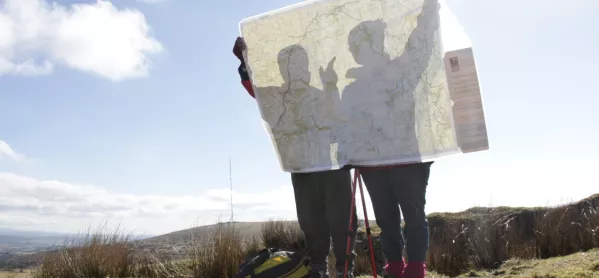- Home
- Revealed: 10 target areas for new parent free schools
Revealed: 10 target areas for new parent free schools

A new project intends to grow new community-backed free school bids in 10 areas of the country with lower levels of progress and achievement.
The New Schools Network (NSN) is planning an “innovation incubator” where its teams will look to identify people who might be interested in setting up schools in these targeted areas.
The government-backed charity has identified 10 places across the country where it hopes to start this work.
The plans come as an Education Policy Institute report today warned that the free school programme has not reached areas of the country with the lowest levels of achievement.
Exclusive: How the big society dream for free schools faded away
Background: DfE ‘should forget about free school innovation now we know what works’
Howard: Why the free school programme needs a boost
Report: Five key findings from EPI free school report
The NSN said the innovation incubator aimed “to bring a fresh approach to some of the most educationally challenged communities”.
It has identified target areas by looking for where GCSE achievement is below the national average for progress and attainment.
The New Schools Network is looking to support free school bids in Thanet, Sandwell, Stoke on Trent, Tameside, Exeter, Milton Keynes, Telford and Wrekin, Manchester, Hull and Wolverhampton.
A spokesperson for the charity said the incubator could provide people with one-to-one workshops on building an effective free school project group or help people to develop a vision for a new free school based on the needs of their local community and what they want a school to achieve when it opens.
The charity’s director Unity Howard has also called for the criteria for free schools applications to be relaxed so that bids could be successful in areas where there is not a shortage of school places.
Ms Howard, who became the director of the New Schools Network in July, said that in the last wave of free school applications, all 22 were run by multi academy trusts.
She said: “It’s been great to see the prime minster and new secretary of state interested in free schools and interested in the original vision of free schools.
“The announcement that the prime minister made was very much focused on parent groups and teacher groups setting up their own schools in areas that really need them.
“It is great to say that but obviously they have got to deliver on that too and that means providing more capital funding to fund more waves next year and beyond but it also means changing the criteria so these groups can go through.”
Tes revealed last year that the number of genuinely parent-led free schools has declined over six years to the point where none at all were approved in the most recent wave.
Ms Howard said her charity hopes to play a more proactive role in identifying sponsors in local areas to address this.
She added: “Part of the big society vision for the programme was people coming together and taking a stake in public services but we don’t always have people in some communities who have that sort of time.
“That is one of the reason we are launching a pilot innovation incubator. It will mean we can go into these communities, talk to people there and understand their challenges in education and I would hope play a role in bringing those people together so they can submit a strong application.”
She said the project was looking for a different type of proposer group to “your big multi academy trusts”.
In calling for the DfE to change the application process for free schools she added: “The current criteria is very focused on demonstrating there is a significant need for places and need for places is always going to be important but what this overlooks is that some of the areas of the country where there is entrenched educational failure.
“What this means is the government is looking at parents and saying, ‘You can’t have a free school because there are places at that school down the road which has been stuck or coasting for decades.’
“What we want to see is that criteria opening up to making sure we can have new schools in the communities that need them most.”
Earlier this year one of Ms Howard’s predecessors at the NSN, Toby Young, suggested the Department for Education should “forget about” choice and innovation in its free schools policy and concentrate on rolling out what it knows works.
Keep reading for just £1 per month
You've reached your limit of free articles this month. Subscribe for £1 per month for three months and get:
- Unlimited access to all Tes magazine content
- Exclusive subscriber-only stories
- Award-winning email newsletters



